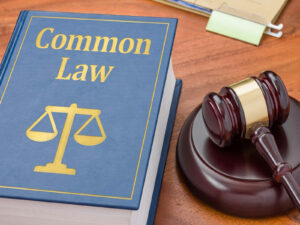
Chapter 193, the General Provisions Chapter of Title 15 defines the words officer and public officer. The definitions of these words— and other words found in Chapter 193, apply throughout Title 15, which is the part of Nevada’s code that defines different kinds of criminal conduct and outlines penalties imposed for bad behavior. Your case could hinge on whether you actually meet the definition of officer or public officer, so you should ensure you have a clear understanding of exactly what the definition is.
LV Criminal Defense can help. Our Las Vegas defense lawyers have studied Nevada law intensely and have decades of collective experience representing defendants — including public officers — who have been accused of various types of crimes. We will fight to help you earn an acquittal or to reduce penalties that could result from conviction, so you should give us a call as soon as possible after you have been charged.
The definition of a public officer in Nevada is found within N.R.S. 193.019. According to this statute, all officers, members and employees of the state of Nevada are considered to be public officers. All employees, officers and members of political subdivisions of the state of Nevada are also considered to be public officers.
If you are employed by a public corporation or a quasi-public corporation of the state of Nevada, or if you are employed by a special district, you fall within the definition of public officer as well. Those who are on agencies, boards, or commissions which were established either by the state of Nevada or by any political subdivision within the state of Nevada will also be considered a public officer.
Nick Wooldridge has a long track record of representing clients accused of serious federal and state crimes in Nevada.
Finally, anyone who exercises any of the powers or functions of a public officer will be considered to be acting as a public officer, as will anyone who assumes to exercise powers and functions that normally belong to public officers.
Public officers are subject to many strict regulations in the state of Nevada, and a violation of many of the regulations applicable to these officers could lead to criminal charges of varying degrees of severity.
For example, Nevada Revised Statute section 200.3773 explains that a public officer who has access to records identifying sexual assault victims is prohibited from disclosing information about the victims to anyone other than the defendant or the defendant’s lawyer; investigators for the prosecution or defense; individuals authorized to receive the information via court order; or advocacy organizations entitled by law to receive the information. If a public officer violates these rules, he could be found guilty of a misdemeanor offense.
This is just one of myriad examples of special rules applicable to public officers which — if you break them — could potentially result in you facing harsh penalties.
A Las Vegas criminal attorney at LV Criminal Defense will help you to understand what it means to be an officer or a public officer. We can help you to defend yourself if you are accused of wrongdoing and to understand the rights granted to you under Nevada law.
When I initially met with Mr. Wooldridge, he took the opportunity to sit and go over my problem with me. He described details in my case which he found disturbing and explained why he I should have him on my side.
The goal is to help you navigate the criminal justice system effectively and we have the experience to do it. Give us a call today to find out more about the ways in which our legal team can help you or contact us online any time to get personalized one-on-one assistance with your criminal case.